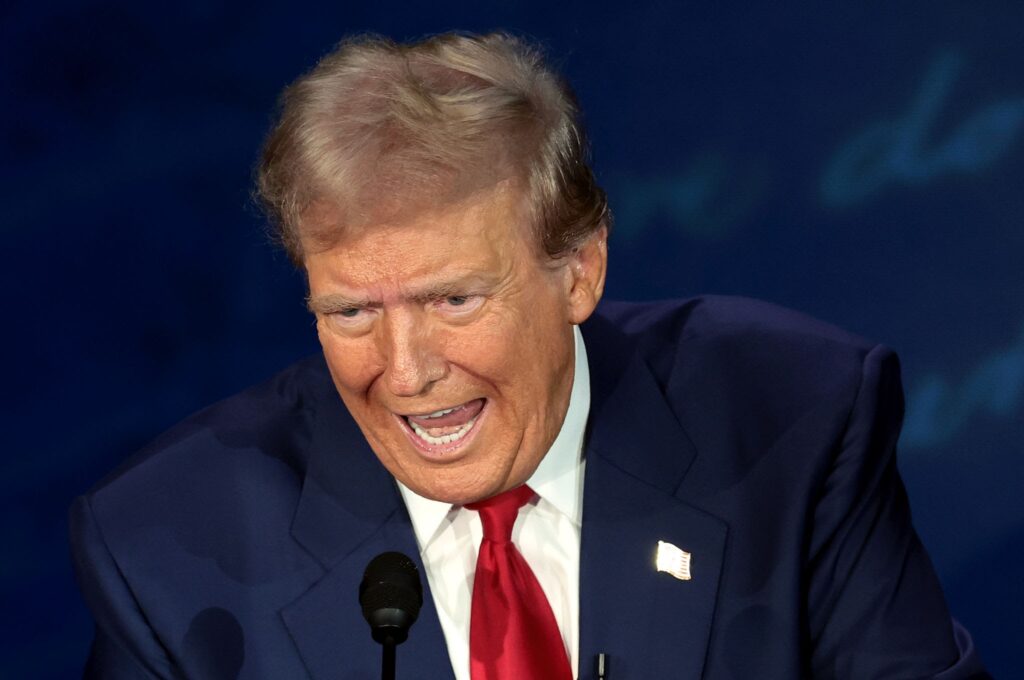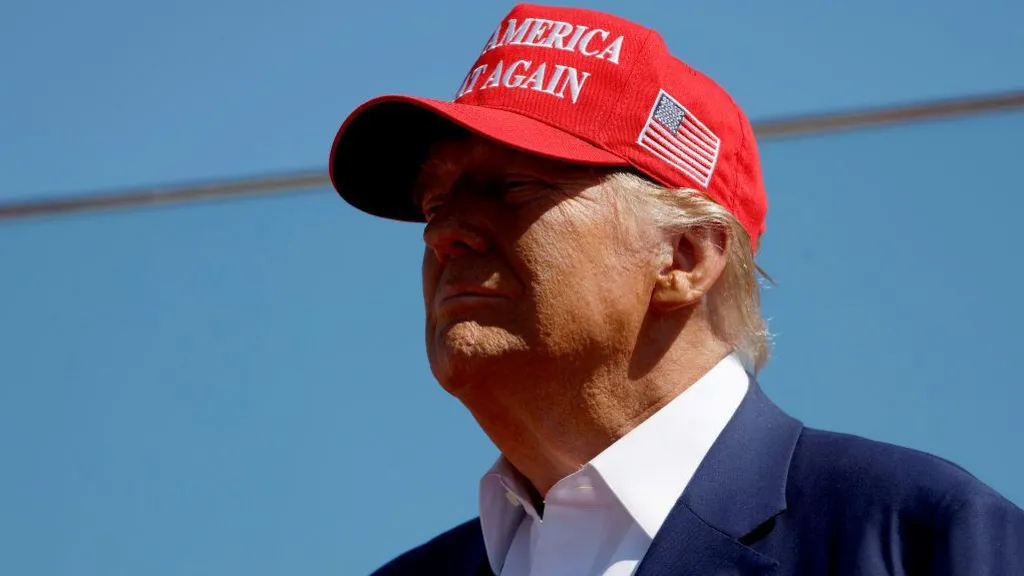Former President Donald Trump, a political giant in the Republican Party, has hinted that his 2024 presidential run might be his final one. At 78 years old, he’s been a dominant force in US politics for almost a decade. But in a recent interview, he suggested that if he doesn’t win this time, it could be the end of his campaign trail days.
Thank you for reading this post, don’t forget to subscribe!So, what does this mean for the future of the Republican Party and the 2028 elections? And could we really be seeing Trump hang up his campaign hat? Let’s dive into what Trump said, the context behind it, and what it all means for the political landscape.
“I Don’t See That at All”—Trump’s Surprising Admission
In an interview with Sinclair Media Group, Trump was asked whether he could see himself running again in 2028 if he loses this upcoming election. His response? A rare display of self-awareness: “No, I don’t. I think… that will be it. I don’t see that at all.”
For anyone familiar with Trump’s usual bravado, this is a bit of a shocker. He’s spent years proclaiming his inevitable victory, rallying supporters with promises of success. So, this acknowledgment of a potential loss feels like an unexpected shift in tone.
That said, Trump quickly reassured his base with a classic dose of optimism: “Hopefully, we’re going to be very successful.”
Why Trump Wouldn’t Run Again
It’s important to note that if Trump wins the 2024 election, there wouldn’t even be a 2028 campaign to talk about—U.S. law limits presidents to two terms, so he’d be out of the race by default. But what about the possibility of a loss?
The fact that he’s even entertaining the idea of not running again could signal that Trump is reading the room. Kamala Harris, the Democratic nominee following President Joe Biden’s exit from the race, is leading in several key polls. According to a CBS poll, she’s ahead of Trump nationally by 52% to 48%. In battleground states, her lead is narrower, but still solid at 51% to 49%.
Trump isn’t used to being the underdog in an election. But now, with Harris gaining momentum and raising $190 million in August alone (compared to Trump’s $130 million), it’s clear that his path to victory isn’t as certain as he might have hoped.
Polling: Trump Acknowledges His Challenges
This is actually the second time in just a few days that Trump has acknowledged the possibility of losing. Last Thursday, while speaking at an event held by the Israeli-American Council, he even implied that Jewish voters might be to blame if he doesn’t win. “And the Jewish people would have to do a lot with that if that happens because at 40% [support], that means 60% of the people are voting for the enemy,” he said.
These comments, which immediately drew criticism from the Harris campaign and organizations like the Anti-Defamation League, show a different side of Trump’s campaign strategy—one where he’s hedging his bets, something we haven’t seen much of in the past.
Read more: Who Is Angie Bowie, The Eccentric First Wife Of David Bowie from 1970 to 1980 ?
What Happens if Trump Loses?
Trump’s comments raise an interesting question: What happens to the Republican Party if Trump bows out after 2024? Love him or hate him, there’s no denying that Trump has completely reshaped the GOP over the past eight years. He’s turned the party into a movement centered around his personal brand of populism, anti-establishment rhetoric, and “America First” policies.
If Trump steps away, who takes the mantle? There’s already buzz about potential successors, like Florida Governor Ron DeSantis, who many see as a “Trump 2.0.” But without Trump at the helm, can the Republican Party maintain the same energy that has fueled its base since 2016?
A Possible Turning Point for US Politics
If Trump’s hint about this being his final run holds true, we could be standing at a turning point for US politics. The end of Trump’s political career would mark the end of an era for the GOP and could shift the balance of power within the party. Will it stay on the same Trumpian path, or will it revert to its pre-2016 identity?
Regardless of the outcome, Trump’s influence won’t just disappear. Even if he’s not running for office, he will likely remain a kingmaker within the GOP, endorsing candidates and shaping the direction of the party for years to come.

What’s Next?
As we head into the final stretch of the 2024 election, all eyes will be on the Trump vs. Harris race. While Trump’s candid acknowledgment of a possible defeat is unusual, it doesn’t mean he’s given up the fight. The race is still incredibly close, especially in battleground states where just a few percentage points could make all the difference.
But for now, Trump’s statement has added a new layer of intrigue to the 2024 election. Could this really be the end of Trump’s political career? Only time—and the voters—will tell.

